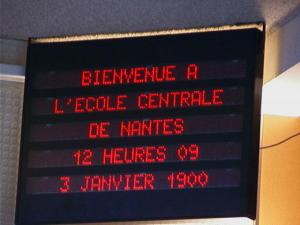This was the title of one of my earliest posts, but that post did not express what I truly felt in my heart on this subject. A more proper treatment follows.
Remember when it was fun to go to the movies?

I do.
Going to the movies as a kid was one of my more cherished experiences during the Reagan Administration. On a Friday night or Saturday afternoon, my father would ask my brother and I, “How would you boys like to see” and he would name a movie that he thought we would want to see and that he felt would be appropriate for children our age. Until I went away to college, this meant it had to be a cartoon or about a talking animal.
I distinctly remember my father handing the ticket cashier a $20 bill for an adult and two children, and getting back enough change to buy us candy. Twizzlers were my go to movie-food. I would make sure to open it before the coming-attractions so that the deafening Twizzler-wrapper noise would not disturb my fellow viewers. Then I would take each Twizzler, bite off both ends, and blow through it like a straw.
One of my earliest movie memories was when my father took my brother and I to see a popular holiday season movie called Gremlins. The commercials that had probably influenced my father’s choice of film had showed these cute little primate-looking things. Except at some point the movie became less about cute little primate-looking things and more about old women sent on an electric chair speeding up several flights of stairs and jettisoned through a window to certain death. My father was more horrified than the characters in the movie. He asked my brother and I if we wanted to leave, but we shook our heads, eyes never leaving the screen so that we wouldn’t miss any of the mayhem.
My wife and I recently went to the movies for the first time in years. There were so many teenagers I thought the Garmin had accidentally sent us to the high school. I said to my wife, “So this is where people go when they are not old enough to go to bars.” She replied that my social commentary would sound a lot better while waiting on line for tickets.
While I was waiting for tickets I looked up at the prices, and realized I was going to have to hit the ATM that was conveniently located fifteen paces away in the theater lobby. While punching in my PIN I reminisced about the days when a movie ticket cost only $7.50. After we got the tickets I wanted popcorn, and had to hit the ATM again. Thank goodness it was a week I got paid.
We sprinted to Screen # 47 and did not miss a single moment of the half-hour of coming attractions and commercials. I looked around for the remote control and finally understood what was meant by the term “captive audience.”
Half the seats the theater were occupied by teenagers, and each teenager’s hands were occupied by a small glowing screen. I thought that perhaps the small screens were a visual aid for a generation so accustomed to viewing small screens that the big screen exceeded the viewing range. But upon closer inspection of the Justin Bieber seated next to me, I saw that the little screens were just smart phones that were being used in the way that everyone uses them: tune in globally, tune out locally. If there was ever really a fire in the crowded theater, at least I would be able to see where I was going.
As the movie started, I noticed that the younger members of the audience would get up and leave, and then come back, and then leave, and then come back. These antsy adolescents were either part of a cult that drank a lot of water before a movie, or were hanging out in groups and treating public space like their den.
About a half-hour into the movie, a latercomer took a seat behind me. He spent what seemed like ten minutes taking off his very large and crinkly coat, and made so much noise that I missed the framing of the protagonist’s major conflict.
Then someone in the back right corner decided it was time for potato chips or some other snack that comes in a deafening bag. Two characters in the film started and ended a romance before the character in the back of the theater was done opening the bag, which the good folks at Dolby were nice enough to pipe through in surround sound.
During the final battle scene, two people a few rows back got into an argument over the federal budget. And then someone shouted into a cell phone, loudly, “Just meet us outside! The movie’s almost over!” I started to get up and say something, but the soles of my shoes were stuck in congealed soda that a fellow film-goer had wanted to share with the floor.
When I got home I called up my father. I told him about my experience at the movies, about the cell phones, the coming in and out, the talking, the eating, the glowing screens. “Dad, it’s just not like it used to be,” I said, and thought that he would feel my pain and join in condemnation. But he just laughed and said, “At last, my son, you are a man.”



